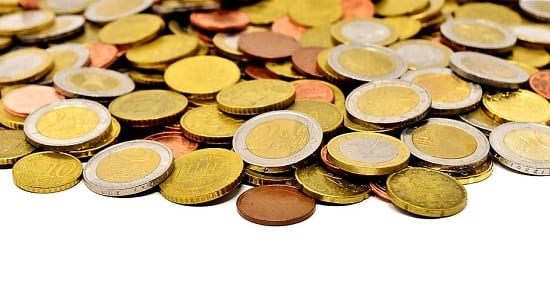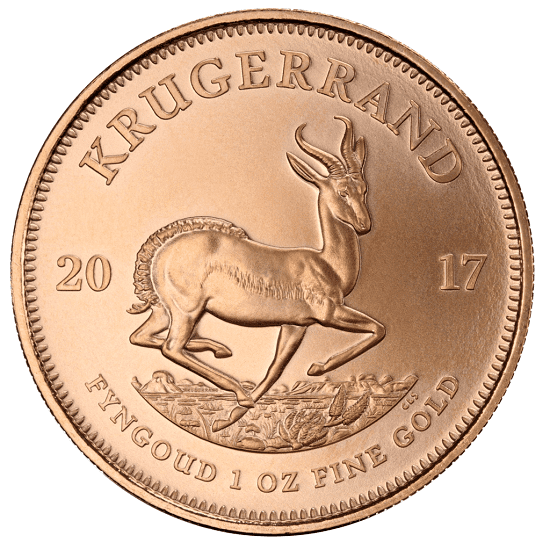Are Gold Coins a Good Investment?
01/07/2020Daniel Fisher
Free & fully insured UK Delivery. Learn more
Secure & flexible payments. Learn more

Buyback Guarantee Learn more
In the world of precious metals investing, it is often said that there is no match for gold. Investing in gold coins can be extremely lucrative, both as a hobby and as a profit-generating investment vehicle. Many investors consider coins to be a better investment since they add liquidity and divisibility to any portfolio. However, it’s important to understand the philosophy and the rules of investing before buying gold coins.
Buying gold coins can be an excellent investment for those seeking portfolio balance. Owning gold in the form of coins, means you have the flexibility to sell small parts of your holding. Sticking to the main bullion coins such as Sovereigns, Krugerrands and Britannias, will enable you to buy at low prices and sell easily. Buying UK gold coins additionally benefits UK investors because any gains made on the sale of the coins is free from tax.
Download the 7 Crucial Considerations before buying Gold coins. Click here
British gold coins are both VAT and CGT exempt, offering investors a wonderful opportunity to maximise their tax savings on their investments. All investment-grade gold is VAT free in the UK and UK gold coins, being legal tender in the country, are also CGT free. That means any profits you make generate when selling is automatically tax-free.

Gold coins are a lucrative investment
Several investors make the mistake of investing in obscure coins due to their collectability and rarity value. But, this is never a good strategy. Your investments in gold coins can reap great benefits if you buy liquid coins like the Britannia or the gold Sovereign. These coins are easily available in the market, without hefty premiums as they are mass-produced. Discounts can be availed on large quantity purchases. By following these simple strategies, you can achieve good returns on your gold coin investments. Liquid coins are much easier to sell at any point in time, as opposed to obscure gold coins.
To save on taxes, it’s important to know which gold coins to buy. Well-known coins like the Krugerrand enjoy a great secondary market and possess all the attributes required to make it an attractive investment. However, only UK coins are considered to be legal tender and their sales are CGT exempt. By investing in British gold coins, you also get the double benefit of your purchases being VAT free. Needless to say, these are important considerations for any savvy gold investor whose objective is to build a strong portfolio and generate healthy returns over a period of time.

Non- UK gold coins like the Krugerrand do not qualify for CGT exemptions
Not all gold buyers are purely investors. Many collectors acquire gold coins as a hobby, and their purchases are based on numismatic interest. Of course, one can combine both these objectives and create a portfolio that has good numismatic value, as well as potential to generate profits. So, you don’t have to stick to buying only mass-produced bullion coins. A perfect example of a diversification strategy could be the Royal Mint’s Lunar series or the Queen’s Beast coins. These are well-known coins that enjoy liquidity and divisibility while generating added value as collector’s items. These coins have generated healthy returns for investors and values have risen by as much as 40% in a single year.
At Physical Gold, we are always keen to help investors achieve their objectives through impartial advice. Call us today on (020) 7060 9992 or get in touch with us online to find out how our investment advisory team can help you identify the right gold coins for your portfolio.
Image credit: Pxfuel and Wikimedia Commons
Live Gold Spot Price in Sterling. Gold is one of the densest of all metals. It is a good conductor of heat and electricity. It is also soft and the most malleable and ductile of the elements; an ounce (31.1 grams; gold is weighed in troy ounces) can be beaten out to 187 square feet (about 17 square metres) in extremely thin sheets called gold leaf.
Live Silver Spot Price in Sterling. Silver (Ag), chemical element, a white lustrous metal valued for its decorative beauty and electrical conductivity. Silver is located in Group 11 (Ib) and Period 5 of the periodic table, between copper (Period 4) and gold (Period 6), and its physical and chemical properties are intermediate between those two metals.